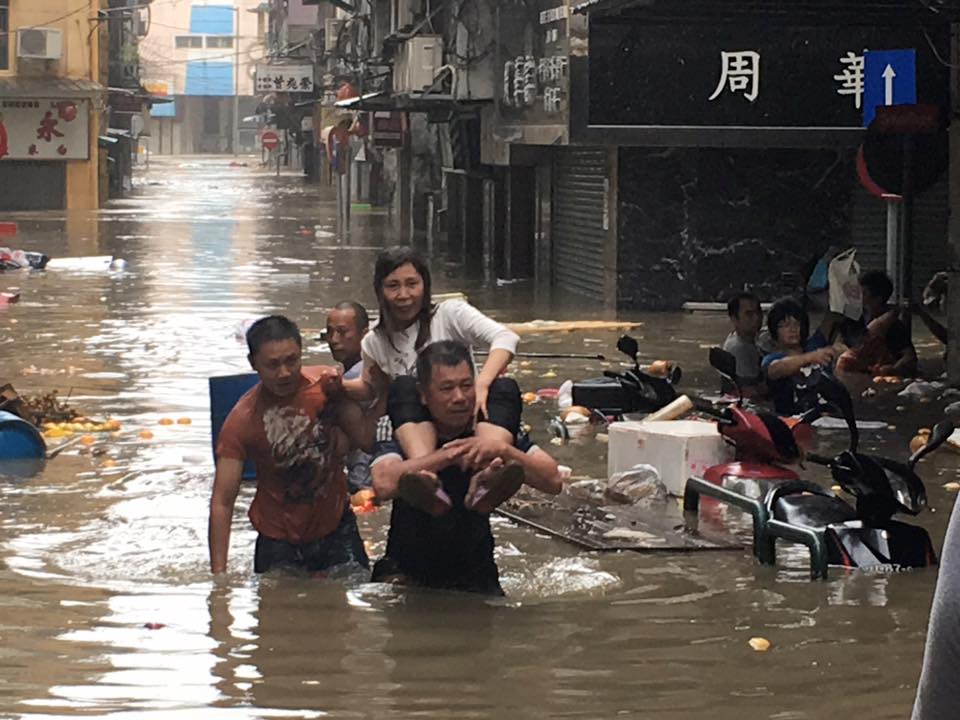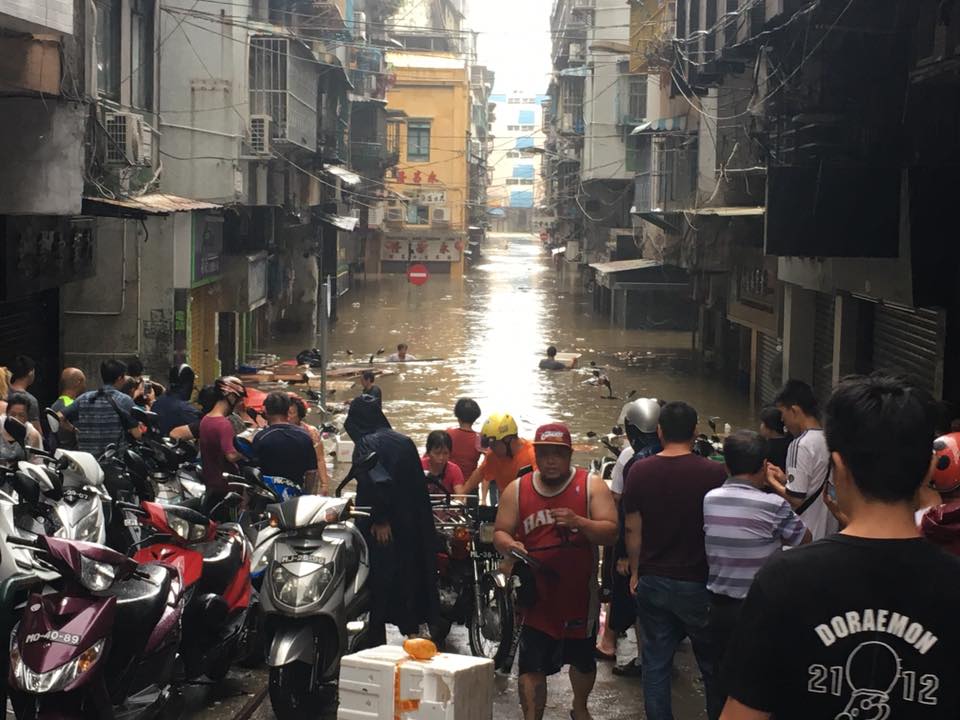Editorial staff from at least five media outlets in Macau have received instructions from upper management to publish more positive stories in the aftermath of Typhoon Hato and minimise critical reporting, according to the Macau Journalists’ Association.
Last week’s storm caused power outages, severe flooding, and 10 deaths in the sister SAR. The city’s Observatory chief is also being investigated in relation to the disaster following complaints from the public.
The Associação dos Jornalistas de Macau posted on its Facebook page on Tuesday that it had started receiving complaints from its members on Monday. It said that editorial staff were being ordered to publish more positive reports.

According to the group’s post, the employees were told to “report more on good people and good deeds, actively spread positive energy throughout society, and decrease [reports] holding the government, especially the highest officials, accountable.”
The Association condemned the order as an act to “fool the public and distort the profession of journalists,” and said its purpose was to divert attention away from the government’s dereliction of duty. It expressed anger, saying it would follow up on the matter. It also asked the public to support the work of journalists in reporting the truth.
Be’ harmonious’
A media worker who wished to remain anonymous told Apple Daily that reporters would not be permitted to report in the field if they did not write more positive stories. They said that they received a call from their boss requesting that the tone of their reporting must be “harmonious,” and told that “if you don’t submit, then you don’t get to do [the work].” He said that other industry professionals had told him of similar situations met by reporters.
See also: Political storm: Macanese rebuff judging eyes from Hong Kong, as army aids typhoon clean-up

The Association said that the value of journalism lies in warning the public, verifying information, finding the root of the problem, holding officials accountable, scrutinising their work, and preventing the same thing from happening again.
“But after the storm hit Macau, the plan to deal with the flooding had not even come out, and we only saw the government busy clearing the noise, using ridiculous reasons to refuse entry to outside journalists; and [compelling] multiple local outlets to conduct self-censorship at almost the same time… with the intent to divert public attention and cover up the root of the problem,” it said.
No entry
Macau authorities refused entry to four Hong Kong journalists over the weekend, saying that they “posed a threat to internal security.” The association also spoke out against the ban, saying that the move “seriously harmed the public’s right to know” at a time when another typhoon was approaching the city on the heels of Hato.
Victor Chan Chi-ping, the head of Macau’s Government Information Bureau, was asked about the internal orders at a press conference on Monday. He denied knowledge of the situation, and said: “The government only supports the media – we never interfere with the internal issues of media outlets.”
